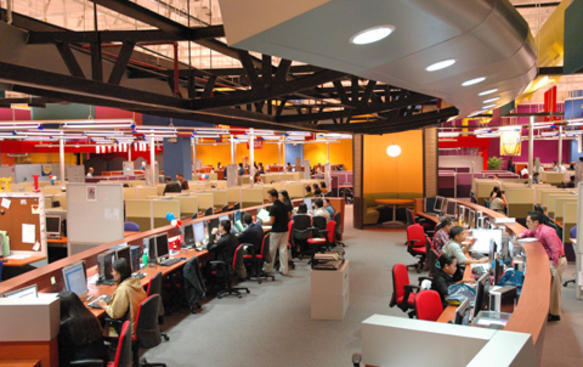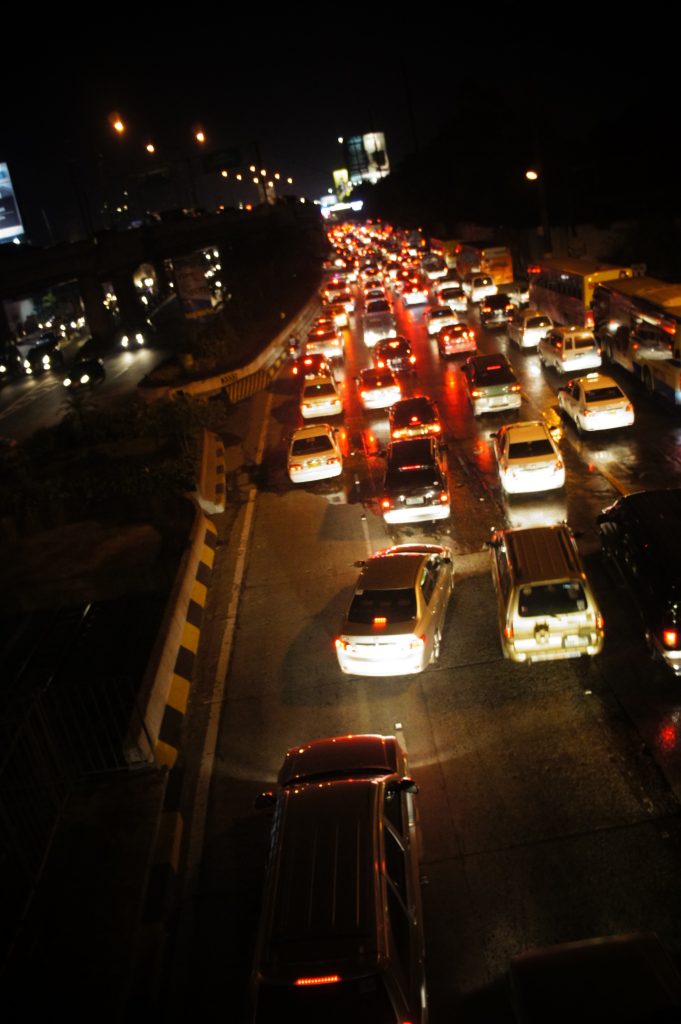More and more people are starting to migrate from rural to urban areas as a result of the rise of new major industries in the city, such as the Business Process Outsourcing Industry. Rural-urban migration is also driven by people’s desires of improving their quality of life.

(Here’s an example of a Business Process Outsourcing Industry. This is TeleTech, a major consulting company in the Philippines from the US. Source of photo: CreativeCommons.)
While Metro Manila has seen a period of unquenchable economic success in the past, it has not, however, been able to properly address the city’s problem of traffic congestion.
Traffic congestion has enormous impacts on the productivity and mobility of its workers:
- Every year, the city loses about P140 billion (CAD $3.7 million) due to traffic congestion.
- Metro Manila is the world’s 3rd worst city in the world for driving, next to Beijing and New Delhi.
- It has a significant impact on the city’s business and leisure travel as well as tourism opportunities due to the lack of proper infrastructure development.
- The attraction on investments in the city is inhibited by the effects of traffic congestion. eg. Polluted air and the inefficiency of the urban environment.
- People’s livelihoods have been largely affected by their limited mobility across the city. The more time people spend sitting in traffic, the more they have to wait to reach to improved access to education, healthcare and job opportunities.
Mobility and traffic management are two deeply intertwined elements that could help boost the city’s overall economy and productivity. Without proper investment and collaboration to enhance their transport systems, the megacity will not be able to reach its fullest economic potential like it once did.

(People spend hours sitting in traffic upon their return home after work. Source of photo: Senia L on Flickr.)
References:
“Metropolitan Manile Development Authority; World Bank. 2014. The Metro Manila Greenprint 2030 : Building a Vision. World Bank, Washington, DC. © World Bank. https://openknowledge.worldbank.org/handle/10986/22824 License: CC BY 3.0 IGO.”